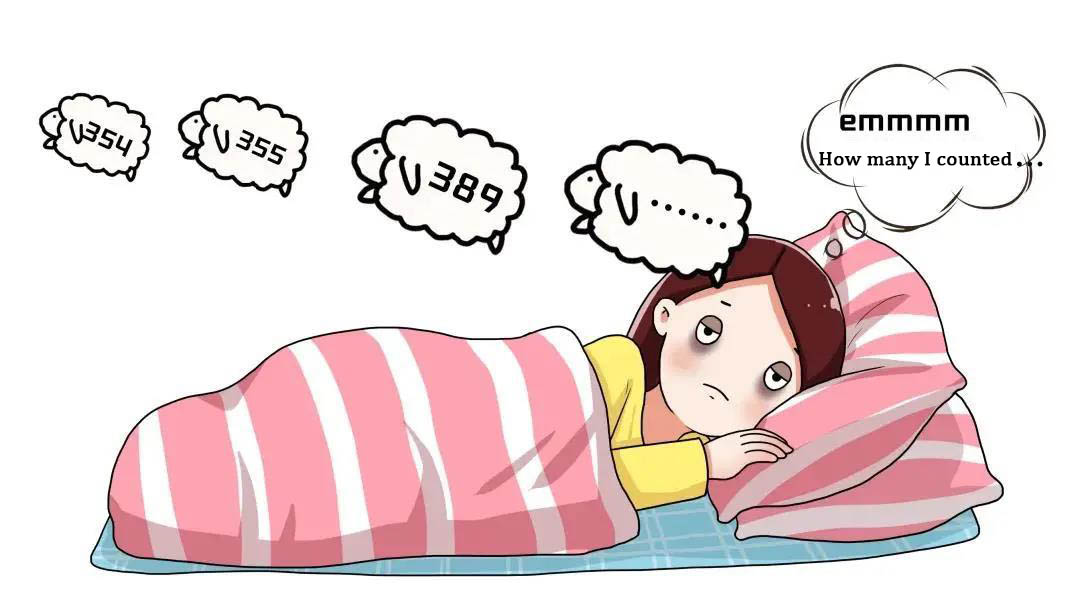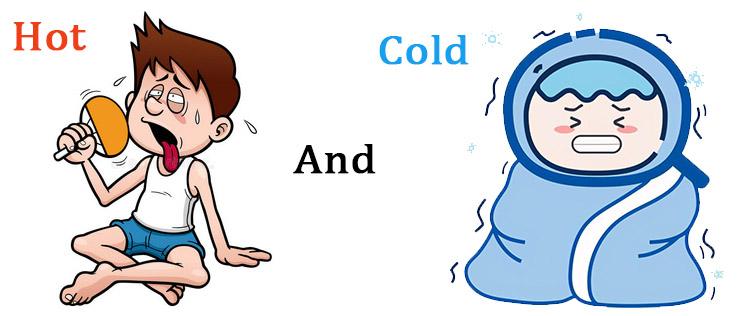In today's society, sleep disorders have become increasingly common, and achieving a good night's sleep has turned into an elusive goal. Over time, poor sleep not only disrupts daily life but also gradually wears down the body, potentially leading to illness. You might wonder why, despite feeling exhausted and physically drained, you still can't sleep. As a result, you wake up groggy the next morning, relying on a hot cup of coffee to start your day. The explanation could be simple: the invisible pressures of life are affecting your sleep quality, impacting your focus and even your emotions.
Fortunately, the complexity of sleep can be improved. The key lies in understanding the main causes of sleep disorders. If your sleep issues are not due to illness or pain, you can enhance your sleep quality by using sauna heat therapy or ice bath cold therapy. These therapies can rejuvenate your body and cleanse your mind from the outside in, leading to better sleep.

The Prevalence and Severity of Sleep Disorders
Why Sleep Quality is Essential to Health
In our lives, aside from work and daily social activities, we spend about one-third of our time sleeping. Sleep is an essential and involuntary process, as vital to our bodies as eating, drinking, and breathing, and it is crucial for maintaining both physical and mental health. Common psychological issues like anxiety and depression often underlie sleep problems. To ensure we get enough high-quality sleep, it's important to understand the factors that affect it.
How to Define and Classify Sleep Disorders
Sleep disorders typically refer to conditions or diseases that disrupt normal sleep patterns. These issues can make it difficult to fall asleep, lead to poor sleep quality, make it hard to stay asleep, or cause a range of abnormal sleep-related behaviors. The most common effects of sleep disorders include daytime sleepiness, difficulty concentrating, mood swings, and a decreased quality of life.
Sleep disorders are classified into several categories: insomnia, sleep-related breathing disorders, circadian rhythm sleep disorders, hypersomnia, parasomnias, and sleep-related movement disorders.
Common Factors Affecting Sleep
External Factors
Sleeping Environment: Sleeping in a new or unfamiliar environment can cause difficulty falling asleep due to issues with security or comfort, leading to insomnia. At home, no matter how comfortable external conditions may be, you are generally more deeply relaxed and sleep better.
Lighting: Our bodies regulate sleep based on light exposure. When light is too strong at night, it inhibits the production of melatonin, a hormone that regulates the sleep-wake cycle and biological clock. This can disrupt the body's sleep preparation by misleading the biological clock.
Shift Work: People who work night shifts are prone to circadian rhythm disruptions, which can negatively impact sleep quality. Crossing time zones can also disrupt the circadian rhythm, resulting in jet lag.
Irregular Schedule: Staying up late using mobile phones or playing games can keep the brain in an excited state, making it difficult to fall asleep and reducing the amount of deep sleep. Excessive napping during the day can also affect nighttime sleep.
Drugs: Certain substances, including caffeine, nicotine, and some prescription medications (such as antidepressants), can stimulate the nervous system and interfere with sleep, thereby affecting sleep quality.
Internal Factors
Stress and Anxiety: In today’s fast-paced society, stress, anxiety, and emotional pressures from life, work, or personal issues can lead to sleep imbalances. This may increase rapid eye movement (REM) sleep, reduce deep sleep, and result in greater fatigue the following day.
Disease or Physical Problems: Excessive exercise leading to muscle soreness and joint pain can make it difficult to fall asleep. Additionally, respiratory diseases, cardiovascular conditions, nervous system disorders, endocrine and metabolic diseases, and other painful conditions can cause difficulty falling asleep, reduce deep sleep time, or result in insomnia.
Effective Strategies for Dealing with Sleep Disorders



Use Sauna to Help Sleep
Saunas have long been popular as a healthy option, whether at home, in a gym, hotel, or health therapy center. Saunas use heat to stimulate the body, triggering a series of beneficial reactions.
Relieve Tense Muscles: When chronic pain or fatigue makes it difficult to fall asleep, the high temperatures in a sauna help relax muscles, reducing tension and pain.
Promote Blood Circulation: The heat from the sauna dilates blood vessels, enhancing blood circulation and allowing all parts of the body to receive more oxygen and nutrients. This relaxation helps facilitate faster sleep.
Relieve Stress: The natural fragrance of wood in traditional saunas, combined with a tranquil atmosphere and surrounding heat, promotes the release of endorphins and other happiness hormones. This improves mood, reduces mental stress, and alleviates anxiety, contributing to faster sleep onset.
Regulate Body Temperature: After leaving the sauna, the body’s surface and core temperatures gradually decrease. This process mimics the body’s natural sleep-inducing mechanisms, promoting melatonin production and making it easier to fall asleep.
Purify the Respiratory Tract: The hot steam in a sauna helps clear and open the respiratory tract, making breathing smoother. This can be beneficial for those with sleep problems due to dryness or allergies. However, be aware that traditional saunas can have high temperatures and humidity, which may not be suitable for individuals with respiratory conditions. Consult your doctor beforehand or opt for an infrared sauna with lower temperature and humidity.
For best results, it is advisable to use the sauna 1-2 hours before bedtime. This allows your body sufficient time to cool down, aiding in better sleep. Using the sauna immediately before bed can be counterproductive, as the elevated body temperature may interfere with sleep.

While the primary purpose of ice baths is to reduce muscle inflammation and accelerate recovery, and they may not directly induce sleep as effectively as saunas, they can still contribute to deeper sleep through several mechanisms:
Lower Body Temperature: A drop in body temperature is a natural physiological signal for the body to prepare for sleep. The cooling effect of an ice bath may help you fall asleep faster by mimicking this process.
Reduce Inflammation and Muscle Fatigue: For those who have difficulty sleeping due to exercise-related inflammation or muscle pain, ice baths can help reduce these issues. By alleviating inflammation and muscle fatigue, ice baths aid in quicker recovery and can relieve sleep problems.
Reduce Stress: Similar to saunas, ice baths can help relieve tension in the body. The cooling and relaxing effects of cold therapy reduce both psychological and physical stress, facilitating deeper sleep.
Improve Blood Circulation: Cold therapy causes vasoconstriction, which is followed by vasodilation once the body warms up. This process can enhance blood circulation and promote relaxation.

Combination of Hot and Cold: Sauna and Ice Bath
When a sauna is used in combination with an ice bath, this method is known as "alternating hot and cold therapy." The process involves first using the high temperature of the sauna to promote blood circulation and relax muscles. Following this, the cold water stimulates the body, constricts blood vessels, and reduces inflammation and fatigue. This cycle of stimulation and relaxation helps reduce stress, clear the mind, and achieve optimal sleep quality.
Procedure:Typically, the alternating hot and cold therapy involves 2-3 cycles. Each hot therapy session lasts 15-20 minutes, followed by 1-3 minutes of cold therapy. Adjust the duration and number of cycles based on your personal tolerance. Conclude with cold therapy to quickly lower your body temperature and aid in falling asleep.
Tips:
If you have health issues such as cardiovascular disease, low blood pressure, or cold allergies, consult your doctor before starting alternating therapy.
Stay hydrated. You will sweat significantly during the sauna session, so it's important to replenish fluids to prevent dehydration.
The Importance of Sleeping Habits
Good sleeping habits are essential for falling asleep faster and maintaining high-quality sleep, which is crucial for both health and overall well-being. Here are some key points about sleeping habits that may be helpful:
Improve Sleep Quality - Regular Work and Rest: Maintaining a consistent sleep schedule, even on weekends, can stabilize your biological clock. Going to bed and waking up at the same time each day helps improve sleep quality, making it easier to enter deep sleep and allowing your body’s recovery and repair functions to operate normally.
Prevent Sleep Disorders - Avoid Stimulating Activities: To promote better sleep, refrain from using electronic devices and consuming caffeinated drinks, such as coffee and tea, before bedtime. These activities can make it more difficult to fall asleep.
Support Physical Health - Enhance Immunity: High-quality sleep is closely related to the proper functioning of the immune system. Poor sleeping habits can weaken the immune system, increasing the risk of illness.
Improve Cognitive Ability - Memory and Learning: If you find that your memory and learning ability are declining, it may be due to poor sleeping habits. Inadequate sleep can reduce attention, creativity, and decision-making abilities.
Weight Management - Control Appetite and Metabolism: Sleep directly affects the secretion of hunger hormones. Lack of sleep can disrupt these hormones, leading to increased appetite and potential weight gain.
Improve Quality of Life - Reduce Daytime Fatigue: Good sleeping habits help you feel energetic, efficient, and happier during the day. This leads to a higher overall quality of life and a stronger sense of well-being.








